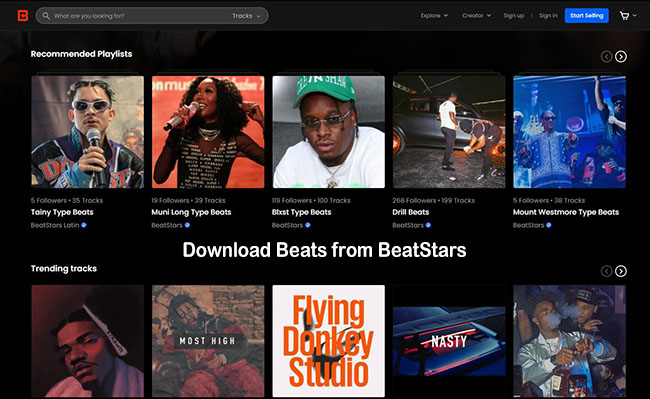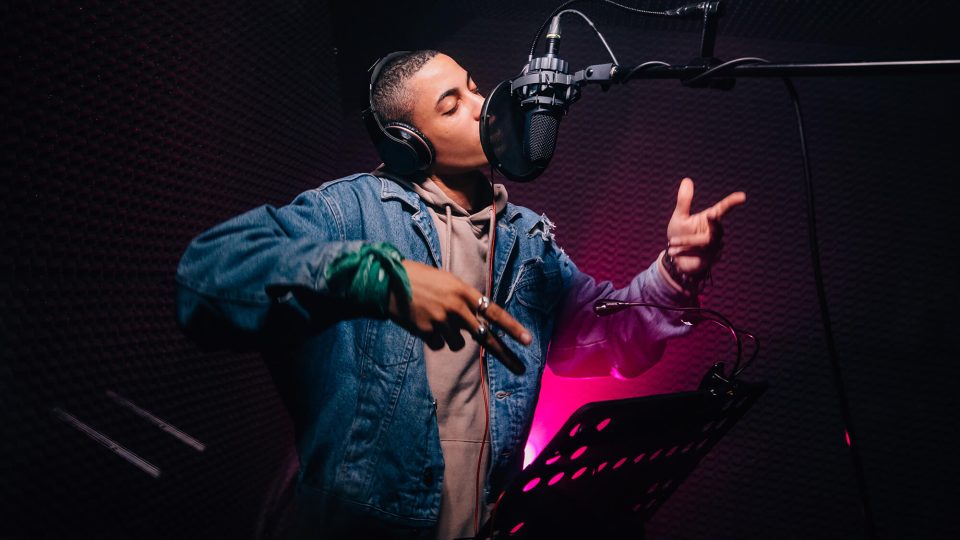Beatmaking Tips – Working with Artists
As a beatmaker, leasing beats is one of the most effective ways to monetize your music. And while beat leasing differs in many ways from the traditional producer/artist dynamic, it’s still important that both parties communicate effectively. Your success depends heavily on building strong, professional relationships with the artists who use your work. Healthy working relationships benefit both parties, allowing you to successfully grow your business and status as a beatmaker.
In this article, we dive into the various aspects of this relationship and how to nurture it from the moment an artist discovers your work.
Initial Contact & Communication
For many beatmakers, your relationship with an artist starts with an initial discovery. This will largely depend on where you are marketing and selling your beats i.e. social media, your website, or a beat-selling site. Once an artist discovers your beats it’s crucial to get the ball rolling straight away and respond to any enquiries in a timely and professional manner. Your initial communication will depend largely on where the artist has discovered your beats.
- Beat Selling Stores: With many best-selling platforms a lot of the processes are handled automatically so there’s less need for direct communication. You should however still be prepared for enquiries.
- Direct Beat Sales: When selling beats directly in your initial email, you should include basic information such as pricing confirmation, licensing details, and the file formats available (MP3, WAV, Stems). You may also want to include information about how long they can expect to wait for the files and whether there are any options for customization
The key to your initial communication is to stay open and approachable. Bear in mind that some artists might be new to leasing beats, and they’ll have plenty of questions. You will also have to communicate with artists who don’t speak your language so be prepared for potential language barriers. Be helpful and patient as they navigate the beat buying process. Remember that building a rapport at this early stage sets a positive tone for your working relationship.

Sending Beats & Licenses
Depending on where you’re selling your beats, the next step is to send over the file(s). Offering multiple formats like MP3 and WAV is standard. You may also want to consider offering Tagged and Taggless options. The Provision of stems (separate instrument tracks) is also commonplace although stem provision generally comes at a premium price. Stems are great as they offer the artist more flexibility to arrange a track to their vocal.
When sending beats, it’s important to clarify the licensing terms. Whether it’s a non-exclusive lease (which allows multiple artists to use the same beat) or an exclusive purchase, artists need to understand the limitations and rights. Non-exclusive licenses are a more affordable choice for artists. They also mean you can lease the same beat to others. An exclusive license or buyout on the other hand ensures that the artist gets sole usage of the beat.
You should always provide a written contract or licensing agreement that outlines these terms. Beat-selling platforms will generally automate the process of sending the Licence agreement to the artist. Whatever the delivery method it’s vital that communication is clear. This will avoid any potential misunderstandings down the line, especially when it comes to distribution, royalties, and credit.
Occasionally an artist may request revisions or the customization of a beat. Handle these requests professionally and courteously. Depending on the scope, you might offer small revisions for free. If there are any significant changes then you might want to discuss additional payment. This flexibility shows that you are attentive to their needs and willing to collaborate creatively.
Building Trust & Ongoing Relationships
Trust is the foundation of any successful working relationship and this certainly holds true for any beatmakers/artist relationship. By consistently delivering top-quality original beats and maintaining transparent communication, you should be able to build trust over time.
It’s good practice to follow up with artists after they receive the beats. Just a short email asking how their project is going demonstrates an interest in their career and success. This proactive engagement has the potential to lead to repeat business. And if the artist’s career does start to blossom and bear fruit then you stand a greater chance of continuing your working relationship.
Another way to build lasting relationships is to offer loyalty discounts or exclusive early access to new beats. Such offers not only reward your existing clients but also strengthen the long-term relationship.
Keeping in Contact
Once you have established a relationship and trust with an artist it’s crucial to maintain this. This is where email lists and databases come into play. These allow you to keep track of the artists you have worked with and their preferences. It also allows you to directly target them with updates such as fresh unreleased beats.
You can gather artist contact information through your website, social media, or after a successful transaction. Just make sure you abide by any data usage laws. Often beatmakers will give away free beats just to gather email information.
Once you’ve built your email list, make sure you’re sending relevent, non-spammy content. For example a regular newsletter. This could include new beat drops, promotions, or tips on using your beats in the studio. The key is to keep the artist engaged without overwhelming their inboxes. Balance is key!
Issues or Conflicts
It’s inevitable that from time to time you will have to deal with a challenging situation between yourself and an artist. Common issues may include licensing misunderstandings, late payments, or technical difficulties with the files.
When such an issue arises, it’s important to remain professional and avoid going on the defensive. For example, if an artist has got confused and believes they have exclusivity but only purchased a non-exclusive one, calmly refer to the agreement they signed, explaining the difference. Offering to renegotiate or work on a solution can often diffuse any such conflicts or misunderstandings.
Late payments are another common issue. This is particularly the case with custom orders or where you have agreed to do additional work on a beat or track. A lot of payment issues can be avoided in the first place by asking for a deposit upfront. This acts to protect both parties. Another option is to offer flexible payment plans if additional funds are required.
Discussing Buyouts or Exclusive Rights
From time to time artists may reach out to inquire about securing the exclusive rights to a beat. If this happens it’s essential that your communication is clear and transparent. Explain what your price would be for exclusive rights. If the artist questions the price clarify the potential loss of future earnings from leasing the beat to others.
When discussing buyouts, it’s important to negotiate a fair price. This should take into account the demand for the beat as well as its potential value to the artist.
When discussing any type of exclusive licence or buyout always ensure the artist fully understands the terms. A detailed contract reflecting the agreed terms should be prepared and signed. Exclusive rights often involve more complex legal arrangements, so both sides must be on the same page.

What to do in the Case of a Track Blowing Up.
And finally one of the most exciting moments as a beatmaker is when an artist you’ve supplied beats to gains significant success. This is where all the time you have put into maintaining a good working relationship has the potential to pay off. Sometimes it may even be the case that the track that you produced blows up. When this happens, it’s important to maintain your relationship while also considering the potential for renegotiation.This will of course depend on the terms of your contract.
As the artist’s profile rises, your beat may increase in value. If you’ve only leased the beat to them non-exclusively this may be an opportunity to negotiate an exclusive license or buyout. For example, most major labels would want to prevent other artists from using the same backing track. While renegotiation is advised be careful not to strain the relationship. Keep any proposed new terms reasonable. Remember, maintaining a good long-term connection with the artist could be of way more value than a one-time transaction.
Finally, it’s important that you’re properly credited on the artist’s release(s). Having your name on the tracks of up-and-coming or established artists can lead to more exposure for your beats. This could potentially lead to additional beat-selling opportunities and even placements. It will also mean that you can credit the High Profile artist in your producer bio under production credits.
Summary
Building and maintaining a good relationship with the artists who support you by buying your beats is a vital aspect of your beat-making hustle. A good working relationship should be built on trust, professionalism, and communication. By nurturing these relationships, you not only increase your stake as a beatmaker but also contribute to artist’s creative journeys. This makes the collaboration rewarding for everyone involved.
Remember – RouteNote Create subscriptions start from as little as $2.99. You also get 10 FREE credits to spend on samples along with access to our FREE sample pack bundle when you sign-up!
